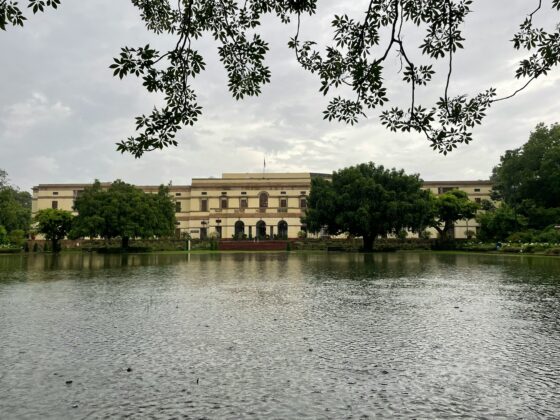
Stretched by labor shortages, fast-changing guest expectations that verge on the impossible, and relentless pressure to operate more efficiently, today’s hospitality operations are more chaotic than ever.
It’s no wonder hoteliers have little headspace to untangle issues like a disjointed guest experience. But a new role is quietly emerging, one that can bring order to the chaos.
Enter the Guest Journey Manager, the orchestrator hospitality businesses didn’t know they needed. This altogether new profession will replace the scattergun approach that is currently keeping occupiers busy, lumping guest experience responsibilities within generic ‘customer support’, or scattering them across IT, e-commerce, marketing and revenue teams. This fragmented approach leads to disjointed service, missed revenue opportunities and frustrated guests.
Here’s why businesses need a dedicated role and leader responsible for orchestrating every step of the guest journey.
The Experience Economy Demands a New Approach
Guest satisfaction today goes beyond clean rooms and friendly staff. It’s about how well each step of the journey connects. Yet, too many hospitality businesses operate in silos, leaving guests frustrated.
It’s a familiar turn of events: A guest books online and spends a good 10 minutes inputting their personal details. Done, right? No – upon arrival, they have to do it all again and even before, they have to wait in line for a slow, manual check-in process. Then, at checkout, they request an invoice but must chase the hotel for days to receive it. It’s an altogether infuriating and needlessly bitty process, all because no one in the hotel’s team has taken full ownership of the guest’s journey, nor is anyone fully accountable for how smoothly it flows from one step to the next.
What makes the hospitality sector’s failure to recognize the critical role of the Guest Journey Manager all frustrating is that other industries have long led by example. Fintech companies, for example, pride themselves on seamless customer onboarding experiences, ensuring every single interaction is friction-free. Digital-native businesses like Amazon, Apple and Google set the bar for user-friendly tech-enabled services such as ‘one-click shopping’. Hospitality is a digital dinosaur by comparison.
The Role of the Guest Journey Manager
A Guest Journey Manager is responsible for designing, overseeing and optimizing the entire guest experience. Unlike a traditional “Guest Experience Manager”, this role is more than a customer service function. It blends technology, operations and data insights to ensure guests receive the best possible service with minimal friction.
Their key responsibilities include:
-
Guest journey mapping: identifying touchpoints and ensuring a smooth, personalized experience.
-
Real-time service optimization: resolving issues before guests even notice them.
-
Technology integration: ensuring all guest-facing and back-end systems work together.
-
Data-driven decision making: Using insights from guest feedback and behavior to refine operations.
-
Cross-department collaboration: bringing together teams across IT, marketing, operations and revenue management to create a unified guest experience.
Why Now?
Three drivers make investing in this role today essential to thriving tomorrow.
Firstly, the shift from service to experience is accelerating. Guests expect more than transactional service. They want an experience that feels personal.
Secondly is the narrowing gap between technology and human touch. Tech adoption in hospitality is rising, but without human oversight, it can feel impersonal. The Guest Journey Manager ensures tech enhances rather than replaces authentic service.
And lastly is the never-ending issue of labor shortages. A Guest Journey Manager helps optimize processes and automate routine tasks, allowing employees to focus on high-value interactions.
How the Role Drives Revenue
A well-designed guest journey goes well beyond customer satisfaction and brand loyalty, it directly impacts a business’ bottom line. A smooth, engaging experience leads to better online reviews, increased repeat bookings and higher ancillary revenue. When guests feel valued, they spend more and return more often.
A Guest Journey Manager can also drive operational efficiency. By integrating AI-driven guest communications, real-time journey monitoring and automated payment solutions, hotels can reduce friction and free up staff to engage the guests.
Success in this role requires both the right person and the right technology, hence a Guest Journey Manager needs access to and is well versed in using:
-
AI-powered messaging for seamless guest communication.
-
An operations platform that tracks the guest journey in real time.
-
CRM tools that enable personalized post-stay engagement.
-
Automated payment and invoicing systems.
-
A unified dashboard that brings all guest data into one place.
Measuring Success
Hiring a person isn’t enough. When appointing a Guest Journey Manager, hotels must also establish the right measurement framework to assess their overall impact. Key performance indicators include:
-
Net Promoter Score (NPS): Are guests satisfied and likely to recommend the hotel?
-
Guest Lifetime Value: Are guests returning and spending more over time?
-
Ancillary revenue growth: Are personalized recommendations leading to higher spend per guest?
-
Guest Effort Score (GES): A measure of how easy it is for a guest to get what they need such as changing a reservation or making a room request. The lower the effort, the higher the satisfaction
Next Steps for Hospitality Professionals
Hoteliers can no longer ignore the cost of a disjointed guest experience. Get it right and you create seamless stays, stronger brand loyalty and higher revenue. Get it wrong and you risk frustrated guests, missed revenue opportunities and a reputation that’s hard to repair.
ABOUT THE AUTHOR
Antonia Bernhardt is a hospitality technology trailblazer, leading Sales and Business Development at operations and guest experience platform Like Magic. Previously, as Senior Sales Director at hospitality tech unicorn Mews, she expanded the company’s footprint across Central and Eastern Europe. With over a decade of frontline experience with global brands like Marriott, Radisson, and Generator Hostels, Antonia leverages deep operational insights to champion digital solutions that simplify hotel management.







